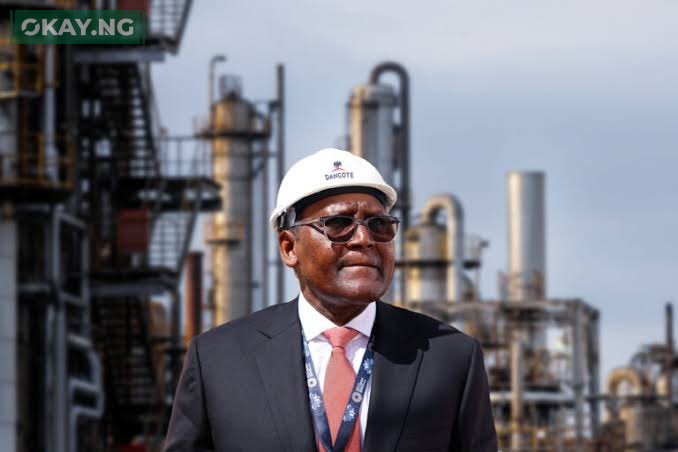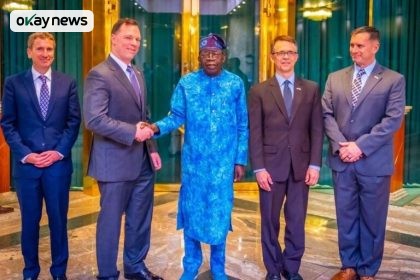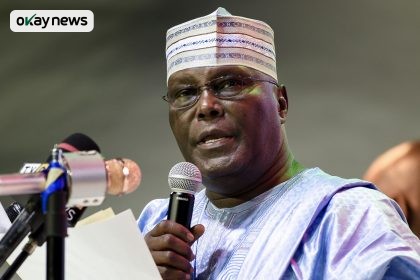The President of Dangote Group, Alhaji Aliko Dangote, has intensified his call for a government-enforced halt on the importation of refined petroleum products, arguing it poses a threat to local production and economic sustainability. His appeal has triggered immediate backlash from oil marketers, energy analysts, and industry observers.
Speaking at the Global Commodity Insights Conference on West African Refined Fuel Markets, organised by the Nigerian Midstream and Downstream Petroleum Regulatory Authority in conjunction with S&P Global Insights, Dangote said that Nigeria’s commitment to the “Nigeria First” policy must be extended to include petrol, diesel, and other refined products.
The “Nigeria First” initiative, introduced by President Bola Tinubu in May, bars all government agencies from sourcing foreign goods or services that are available locally. Under the policy, procurement of such foreign items would require special justification and clearance from the Bureau of Public Procurement.
“The Nigeria First policy announced by His Excellency, President Bola Tinubu, should apply to the petroleum product sector and all other sectors,” Dangote declared, pushing for a ban on imported fuel to protect his $20bn refinery investment.
According to Dangote, the influx of cheap and substandard fuel imports—some allegedly subsidised and originating from Russia—is undermining the financial viability of domestic refineries. “Due to the price caps on the Russian petroleum products, discounted petroleum products produced in Russia or with discounted Russian crude find their way to Africa, severely undercutting our local production,” he noted.
Dangote also warned of the dangers of toxic imports. “We are now facing increased dumping of cheap, often toxic petroleum products, some of which are blended to substandard levels that would never be allowed in Europe or North America,” he said.
okay.ng reports that Dangote dismissed allegations of seeking to monopolise the downstream sector, insisting that his motive was to stimulate local investment. “Too many people who have the means and the opportunity to contribute meaningfully to our nation’s growth choose instead to criticise from the sidelines while investing their wealth abroad,” he said.
Backing his refinery’s capacity, Dangote revealed that Nigeria had already become a net exporter of fuel. “From June beginning to date, we have exported about 1 million tonnes of PMS, within the last 50 days,” he disclosed, estimating this to be 1.35 billion litres.
However, resistance from within the petroleum sector was swift. Independent Petroleum Marketers Association of Nigeria (IPMAN) spokesperson Chinedu Ukadike rejected the idea, warning that a ban could lead to inflation and monopolistic practices.
“If the government does that, that means we will not be able to check inflation and monopoly, since it is the only refinery operating in the country now. We should continue to import even as we buy locally,” Ukadike stressed.
The President of the Petroleum Products Retail Outlet Owners Association of Nigeria, Billy Gillis-Harry, echoed similar sentiments. “We are running a free economy. There’s no reason why any one company should have an overarching value on the entire industry,” he stated, adding that importation helps stabilize petroleum supply.
Professor Dayo Ayoade, an energy law expert from the University of Lagos, also cautioned against any policy that could hand monopoly powers to a private operator. “We can’t rely solely on the Dangote refineries. That would give a monopoly to a private individual,” he argued. He further highlighted that international trade laws do not support product bans of this nature.
Despite the criticism, Dangote insisted on reforms. He urged the government to revoke unused refinery licenses, a position supported by Ukadike, who argued that licenses must serve a functional purpose and not be hoarded.
Meanwhile, preparations continue at the Dangote Refinery as it gears up to launch a nationwide fuel delivery system on August 1, using 4,000 compressed natural gas-powered trucks. The project aims to deliver petrol, diesel, and aviation fuel directly to filling stations and bulk consumers, including telecom companies.
Dangote recently stepped down from his role as Chairman of the Board of Directors at Dangote Cement to focus fully on his refinery, fertiliser, and petrochemicals ventures.







